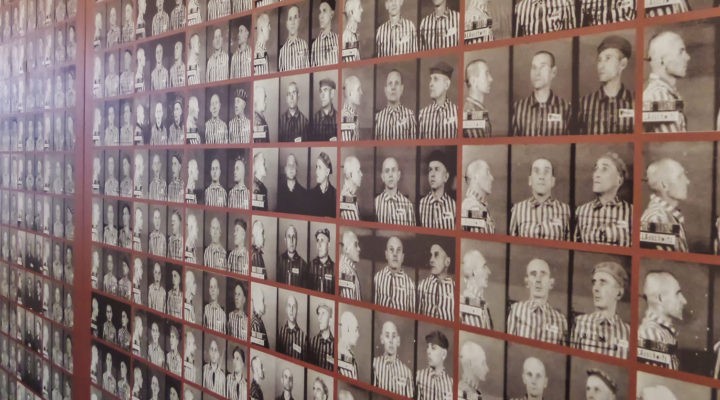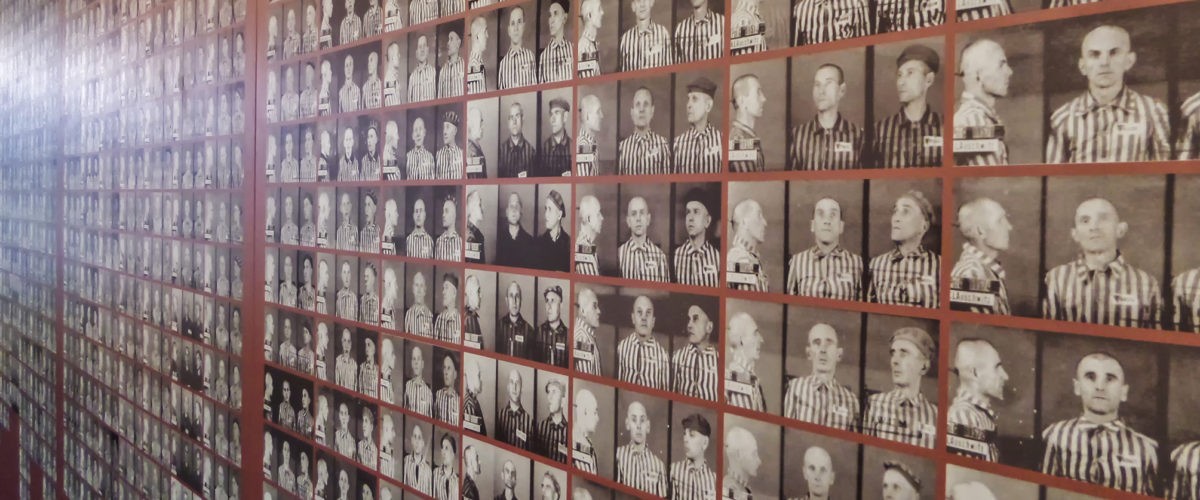As we enter into the season of Lent and draw near to Holy Week, we dig deep into narratives of the coming suffering and death of Jesus, and into what has been — across the centuries — a time when Christian preaching, teaching and violence against our Jewish sisters and brothers has skyrocketed.
In the traditional Good Friday readings, “the Jews” call for Jesus’ death and take the responsibility upon themselves and their children. These and other similar readings have convinced too many Christians that the Jews bore — and still bear — responsibility for the Crucifixion.

Greg Garrett
This past week on Twitter, I spotlighted a recent book on Christian anti-Semitism, Jesus Wasn’t Killed by the Jews. Although the Roman government ultimately held the power of life or death over Jesus, many Christian respondents seemed outraged by the book’s argument. Some version of “of course Jesus was killed by the Jews,” in mostly less-friendly iterations, appeared over and over on my Twitter feed.
I was saddened but not surprised. I grew up in a Baptist church where the nuances of First Century Palestinian culture and history never were considered (or probably even known) by my pastor, who was not seminary trained and whose call to ministry came, if I remember rightly, in the form of his surviving a fall off a roof. “The Bible says what it means,” we learned from him growing up, “and means what it says.”
And yet, as I hope you know, this literal reading of the Gospels, particularly of the Gospel of John, is a bad reading with terrifying consequences.
Yes, “the Jews” are treated as the villains and antagonists in the Gospel of John.
And yes, the correct way to understand this painful charge of guilt and villainy is so much more complicated than the Bible saying what it means and meaning what it says.
As a preacher who doesn’t serve on a church staff, I often have been invited to preach the Second Sunday of Easter, when priests and pastors gratefully collapse in a heap following Holy Week services. The Gospel text in the Revised Common Lectionary, as you may know, is John 20, the pericope of Thomas the Doubter. Most years, I want to dig into the core spiritual teachings bound up in this lesson, but I’m always set on my heels by the very first verse: “When it was evening on that day, the first day of the week, and the doors of the house where the disciples had met were locked for fear of the Jews, Jesus came and stood among them and said, ‘Peace be with you.’”
“The disciples hiding in fear from the Jews … are Jews.”
The disciples hiding in fear from the Jews … are Jews. Almost all the characters in the Gospel of John are Jews. The risen Jesus is a Jew. The Christian Testament was written by Jews. Most scholars believe that the Gospel of John — which understands Jewish ritual and holy days so intimately — was written by a Jew for a community of Jews in conflict with another community of Jews. A bad surface reading, absent context and thought, suggests that Jesus and the disciples stand in opposition to “the Jews,” as though there is already a Christian church in place, and Jesus is the founding pastor of First Baptist, Jerusalem.
My point, simply, is this: The writer of John and the community for whom he wrote were all Jewish. We think, based on a line repeated several times in the Gospel, that the Johannine community had been forced out of the synagogue (or synagogues) for proclaiming Jesus as the liberating King they were awaiting, the hoped-for Messiah.
When we read, teach or preach the Gospel of John and encounter passages about “the Jews,” it’s essential that we remember that this Gospel grows out of a family feud between people who have been in relationship and now are furious with each other. You and I know that family feuds are the worst and most hurtful. We say things we shouldn’t. We vilify and demonize those we have loved — and may still love — for disagreeing with us now.
“It’s essential that we remember that this Gospel grows out of a family feud between people who have been in relationship and now are furious with each other.”
You’ve seen plenty of examples of similar painful divisions in America as recently, perhaps, as your last family gathering. I’ve been reflecting on the letter recently received by Congressman Adam Kinzinger (R-Ill.) from his family members. Congressman Kinzinger voted to impeach Donald Trump in the second Senate trial, and his family wrote to express their deep disappointment, telling him that God was not happy with this decision, and ultimately accusing him (using rhetoric familiar from the Gospel of John) of being part of “the devil’s army.”
How can we understand the behavior of people we have loved, spent time with and now find on the opposite side of a divide of belief — whether that strong belief embraces Donald John Trump or the true Messiah — unless something diabolical is at work?
Elaine Pagel’s classic work The Origin of Satan, now 25 years old but relevant as ever, explores these passages in the Gospel of John and explains the demonization of our opponents, the radical separation between us that confirms us in our rightness and them in their darkness.
Knowing that the painful hatred directed against “the Jews” grows out of this family conflict helps us understand why “the Jews” are vilified in John’s Gospel and in the original Johannine community. They are in pain, they are angry — but, at the time of this writing, they are, themselves, still Jewish.
One of my collaborators on The Jews Didn’t Kill Jesus, Father Nicholas King, sums up the case against this bad surface reading of John: “I am certain, at all events, that the author of this remarkable piece of writing would be horrified at the notion that his Gospel might be used as grounds for killing or persecuting his co-religionists.”
“To preach, or teach, or read past these references to ‘the Jews’ is dangerous to all of us.”
When I preach on Easter Two, I am usually anxious to get to the greatest Christological confession in the Gospels, Thomas’s “My Lord and my God.” But to preach, or teach, or read past these references to “the Jews” is dangerous to all of us.
My friend Kelly Brown Douglas said, in a program we did on race and prejudice at Washington National Cathedral the other night, that it is our job as preachers not to accept, but to “interrogate” and “confront” these dangerous passages. Not to confront these references to “the Jews” might allow people in the pews to continue in the misunderstanding that Jews are the villains of the Gospel of John, not the primary characters.
The Gospel of John is a hard, beautiful book written so that the reader or hearer may believe. This Lent, and this coming Holy Week, I pray that all of us with the awesome responsibility to interpret the word of God will read well, will proclaim faithfully, and will explain why no Christian should live in fear of the Jews.
Greg Garrett teaches creative writing, film, literature and theology classes at Baylor University. He is the author of two dozen books of fiction, nonfiction, memoir and translation, including the critically acclaimed novels Free Bird, Cycling, Shame and The Prodigal. He is one of America’s leading voices on religion and culture. One of his most recent nonfiction books is In Conversation: Rowan Williams and Greg Garrett. His latest book, A Long, Long Way: Hollywood’s Unfinished Journey from Racism to Reconciliation, is hot off the presses. He is a seminary-trained lay preacher in the Episcopal Church. He lives in Austin with his wife, Jeanie, and their two daughters.


